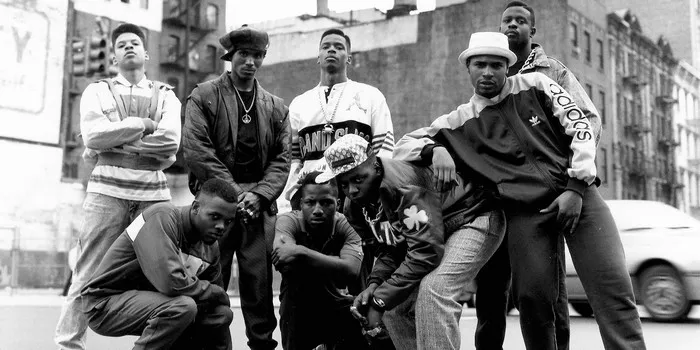In the vast and diverse realm of music, each genre possesses its distinct characteristics, contributing to the rich tapestry of musical expression. Among these, hip-hop stands out as a cultural force that extends beyond mere auditory pleasure. Originating in the Bronx during the 1970s, hip-hop has evolved into a global phenomenon, influencing not only music but also fashion, art, and societal discourse. This article aims to explore the unique elements that distinguish hip-hop from other musical styles, delving into its historical roots, cultural significance, and the innovative features that have propelled it to the forefront of contemporary music.
The Birth of a Movement
To truly comprehend what sets hip-hop apart, one must delve into its origins. Emerging as a response to socio-economic challenges faced by African-American and Latino communities in the Bronx, hip-hop was born out of necessity and resilience. DJs such as Kool Herc and Grandmaster Flash played pivotal roles, using turntables to manipulate and extend the instrumental breaks of songs, laying the foundation for what would become known as “sampling.” The fusion of rhythmic beats, spoken word, and creative sampling set hip-hop apart from its predecessors and contemporaries.
Distinctive Elements of Hip-Hop
Rhythmic Innovation: The Heartbeat of Hip-Hop
At the core of hip-hop lies a rhythmic complexity that distinguishes it from other genres. The beats, often produced by drum machines and synthesizers, create a dynamic and energetic foundation. Hip-hop beats are characterized by syncopation, polyrhythms, and a strong emphasis on the downbeat, creating a pulsating and infectious groove. This rhythmic innovation has not only defined hip-hop but has also permeated various music styles, influencing the global music landscape.
The Art of Sampling: Remixing the Past for the Future
One of the most distinctive features of hip-hop is the art of sampling. Hip-hop producers skillfully borrow snippets of existing recordings, rearranging and manipulating them to create entirely new compositions. This practice not only pays homage to musical predecessors but also serves as a form of cultural dialogue, connecting the past with the present. The ability to weave together diverse elements from different genres and eras is a unique aspect that sets hip-hop apart as a constantly evolving and adaptive art form.
Lyrical Prowess: Poetry in Motion
While other musical styles may prioritize melody or instrumental virtuosity, hip-hop places a spotlight on lyrical prowess. The art of MCing (Master of Ceremonies), commonly referred to as rapping, is a cornerstone of hip-hop. Rappers use their words to convey personal experiences, social commentary, and cultural narratives. The lyrical content of hip-hop is often characterized by its raw authenticity, addressing issues such as racism, inequality, and urban life. This emphasis on storytelling through words distinguishes hip-hop as a powerful vehicle for self-expression and social critique.
The DJ as Architect: Crafting Sonic Landscapes
In hip-hop, the DJ is not merely a performer but an architect of sonic landscapes. DJs use turntables and mixers to blend and manipulate sounds in real-time, creating a dynamic and immersive experience for the audience. Scratching, beat juggling, and other turntablism techniques contribute to the live and improvisational nature of hip-hop performances. This hands-on approach to music production and performance sets hip-hop apart, highlighting the genre’s roots in live, participatory events such as block parties and jam sessions.
Cultural Impact and Global Influence
Beyond its musical elements, hip-hop’s cultural impact is profound and far-reaching. From fashion trends and visual arts to language and dance, hip-hop has permeated various aspects of popular culture. The genre has provided a platform for marginalized voices, empowering artists to express their truths and challenge societal norms. The global influence of hip-hop has transcended geographical boundaries, fostering a sense of unity and shared identity among diverse communities worldwide.
Bridging Generational Divides
What further distinguishes hip-hop is its ability to bridge generational divides. Unlike some genres that may struggle to adapt to changing tastes, hip-hop has continuously reinvented itself, staying relevant across decades. This adaptability is evident in the genre’s willingness to incorporate elements from various musical styles, from jazz and funk to electronic and rock. As a result, hip-hop remains a dynamic and ever-evolving force in the world of music, captivating audiences of all ages.
Challenges and Controversies
While hip-hop’s impact has been overwhelmingly positive, it has not been without its share of challenges and controversies. The genre has faced criticism for explicit language, glorification of violence, and misogynistic themes in some of its lyrics. However, proponents argue that hip-hop serves as a mirror reflecting the harsh realities of the communities from which it emerged, sparking necessary conversations about societal issues.
See Also: The 5 Elements of Hip Hop
Conclusion
In conclusion, hip-hop’s distinctiveness lies in its rhythmic innovation, the art of sampling, lyrical prowess, and the role of the DJ as an architect of sonic landscapes. Beyond its musical elements, hip-hop’s cultural impact and global influence make it a powerful and transformative force. As hip-hop continues to evolve and shape the cultural landscape, its ability to bridge generational divides and foster social dialogue solidifies its place as a unique and enduring art form. Embracing its roots in resistance and resilience, hip-hop remains a beacon of creativity, diversity, and authenticity in the world of music.

